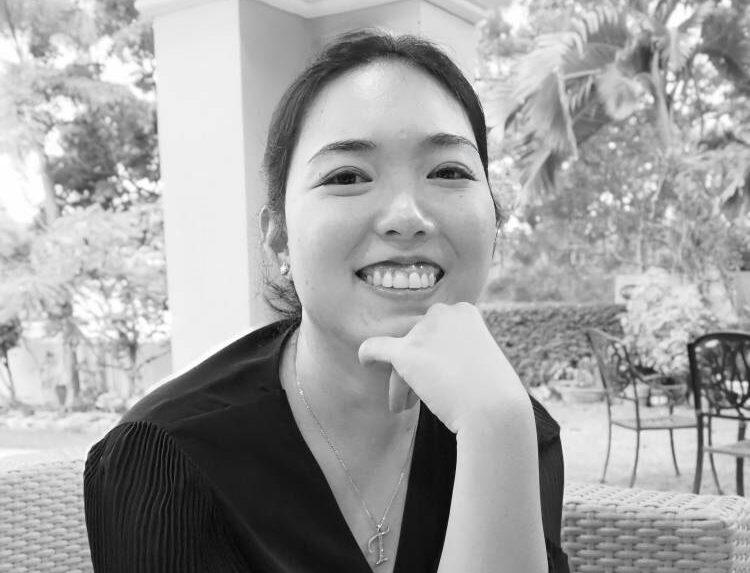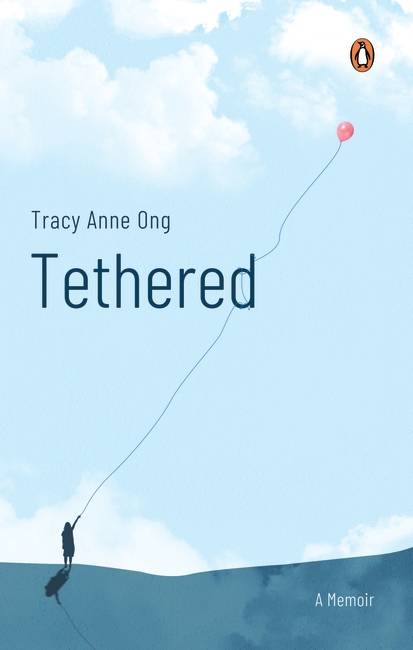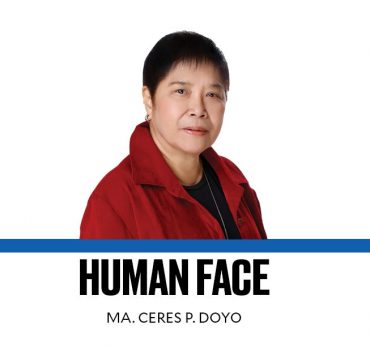Tracy Anne Ong’s memoir ‘Tethered’ is a book that teaches you to live sooner rather than later

Tracy Anne Ong’s story is a testament to one’s ability to wade through life’s trials and tribulations. With every unexpected turn of events, Ong would rebuild and redefine what it means to live. From braving the tides of global catastrophe to radical changes in her own life, Ong always surfaces stronger than before.
She was teaching and practicing law when the pandemic hit. Without the pressure of her demanding career, she turned to what she had always loved—books. She was perusing her shelves and dusting off old titles when it dawned on her, she could open her own bookstore.
She began by selling books from her own collection, then reselling other books she bought. As she was picking up pieces of her life and starting from scratch, her online independent bookstore began to take off. About a year later, Ong would suffer a debilitating stroke, and write about it.
The beginning of Blithe Books
What Ong is best at is flipping a negative into a positive. She was reading an article and stumbled upon the word “blight” and was immediately struck by its potential.
Ong enjoyed the alliteration of “Blight Books,” but knew she’d have to change the word into something cheerier. She landed on the word “blithe” and decided to name her online independent bookstore Blithe Books. Blithe, a word meaning happy or carefree, was the perfect name to describe a person’s disposition when they receive one of her packages in the mail.
Before the pandemic hit, she had an extensive law career ahead of her when suddenly everything she worked toward started to topple in on itself. She suffered a brain stem stroke that affected her eyesight, her speech, her ability to swallow, walk, and even to breathe normally.
“When something so big happens to you, all those seemingly wasted years are so tiny compared to what you experienced,” she says. But Ong always finds new ways to derive meaning. “No regrets that life looks so different now,” she says.

It takes a village
Ong’s household is buzzing with helping hands. Operating an online bookstore is a lot more work than one might expect. There’s social media, there’s curation, there’s packaging, there’s receipting. All those tasks fall into her hands, but luckily, her sister helps. As does her mom and caregiver.
That she managed to run the bookstore and write her memoir while in physical therapy was nothing short of miraculous. And neither could have been possible without the other. She expresses that Blithe Books was not only her passion but also an avenue to get published.
When she landed a contract with Penguin Random House, she was still very sick. She initially submitted an essay called “Tethered,” which would be the titular work of the project. They got back to her the next day.
Tethered
While writing “Tethered” was one of the easiest things she’s done in her professional career, the physical demands of writing a book would require the help of her mother. She tried writing on her own; she purchased a tablet believing she could dictate her words to be transcribed, but the program couldn’t quite catch her speech.
Thus, she learned writing again, this time with her left hand, which took an incredible amount of patience. It began with large letters until she sustained enough practice to write in smaller and smaller print.
Every day, she would return from physical therapy at 5 p.m. Then, after dinner, from about 7 to 9 p.m., she would sit down to write. She was writing as she was recovering. Everything she felt shortly after discharge was being recorded in real time. She wanted to preserve the rawness of the material and even had to restrain herself from too much editing once the manuscript was complete.
She wrote her entire manuscript by hand, not having enough control to press the keys. Her mother took to typing down her words. Every telling of her narrative made its way from her hands, to her mother’s, to the final edit of “Tethered.”
What makes Blithe Books special
When asked how she curated her titles, Ong says she initially picked ones she would read herself. Her choices involved literature about nature or current affairs. They evolved as customers began to make requests. Soon, her selection became more colorful, and lasting relationships blossomed.
“We’re not very current,” she says. She’s hardly on Instagram, except to post. She spends most of her time in the hospital gym, relearning many of her body’s basic mechanisms, which means she’s hardly up to date with new releases. But Ong is not afraid of backlist titles.
“If I could go back in time and raid my grandmother’s shelf just to see what she was reading, I would. It would be like she were [still] alive, recommending titles to me,” she says. It is a deeply personal endeavor not only to stock one’s shelves, but to choose titles embalmed in nostalgia. Ong is tapping into knowledge that will outlive us all. Nothing truly profound ever expires.

















